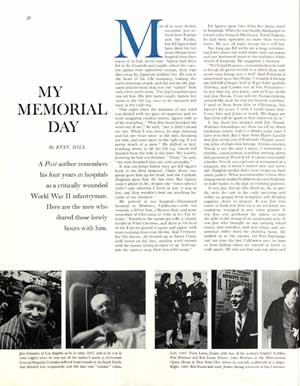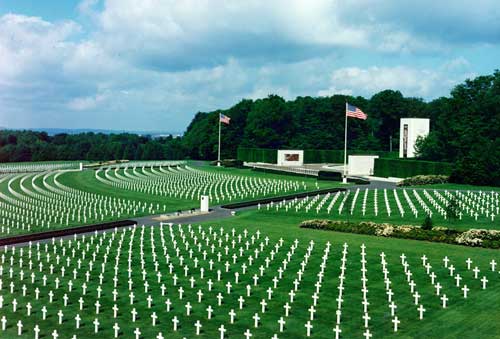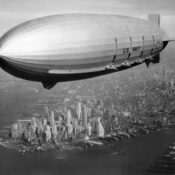During the week of April 10, 1865, The Saturday Evening Post was struggling to keep up with the war news. One jubilant story, “A Week Of Triumph,” had already been set on page 4 when even greater news arrived. The editors moved copy on the facing page so they could print “Latest News/Surrender of Lee And His Army.”
Yet even as it celebrated the triumph of the Union, the Post stopped to consider a more somber aspect of the victory: “Know that the glad bells are but a death knell to many whose souls are filled with darkness and gloom, to many who sacrificed their earthly all on the Altar of their Country. Think you! will the return of our brave heroes bring unalloyed joy to those whose brave and dear ones will never return? Oh! the misery, the wretchedness, the unspeakable loneliness is too awful to contemplate.”
Three years after the war ended, a fraternal organization of Union veterans called for a national “Decoration Day” on May 30th. Members of the Grand Army of the Republic were urged to decorate “the graves of comrades who died in defense of their country during the late rebellion.”
The observation of Decoration Day, eventually renamed Memorial Day, gained new importance with each war, and over the decades the Post often ran articles reminding Americans of their debt to the war dead. In a 1956 article, for example, the editors wrote, “Long after the agony of Bunker Hill, Bull Run, and Bastogne, the dead lie in peace. They and their comrades have left us names the world can never forget: Shiloh, Château-Thierry, Iwo Jima, the Normandy Beachhead, and the Pusan Perimeter. We gave the ground they lie in; they hallow it. Afternoon shadows lengthen on Memorial Day, somewhere faintly a bugle blows taps, and we renew the resolve Abraham Lincoln bequeathed us: that ‘these dead shall not have died in vain.’ ”
Since these words were published, many more Americans have died serving their country, from Khe Sanh to Kuwait, and are still under fire in Afghanistan and Iraq. In total, more than 43 million Americans have served in our armed forces, of which 653,000—roughly 15 percent—died in battle, a number that changes with each conflict overseas.
How should we honor the memory of these men and women? The strewing of flowers on graves that was so often practiced after the Civil War gave way over the years to parades, brass bands, speeches, and rifle salutes. Author Evan Hill considered these practices in the May 28, 1960 issue as he looked back on his long recuperation after World War II (see “My Memorial Day”).
“Each Memorial Day, and on other days, too, when memories come tumbling back, we remember the dead. Too often we hear patriotic phrases composed of empty words, spoken with an empty shallowness; and these are disappointing days. …
“At these times I think of Big Ed Manifold of York, Pennsylvania, my company commander in France, who in our rare rest periods sat near his slit trench reading stacks of The New York Times, eating huge chunks of quartermaster bread spread with sweet French butter, and washing them down with cognac. Big Ed was killed outside Lunéville while holding his wire sergeants’ wounded head in his arms, protecting him from artillery fire. …
“It may be comforting to organize our patriotic feelings, setting aside certain minutes in a certain month to honor our dead. But to me—and, I believe, to the hundreds of combat-wounded men I knew during four years in Army hospitals—the parades and ceremonial rifle volleys sometimes seem to be parodies.”
Evan’s discomfort with the way America honors its veterans was echoed years later by Private Jessica Lynch. Testifying to Congress on the distorted accounts of her wounding and capture issued by the government, she said, “The truth of war is not always easy to hear, but it is always more heroic than the hype.”
Legislation in 1968 shifted Memorial Day from May 30th to the last Monday in May. The act was intended to create three extended weekends (the other two being President’s Day and Veteran’s Day). Memorial Day has since become, unofficially, the first weekend of summer, and the original intent has been partly obscured by the beginning of the vacation season.
In recent years, though, special events have tried to revive the original purpose of the day. The first Memorial Day parade in 60 years was held in Washington in 2004. In 2000, Congress passed the National Moment of Remembrance resolution, which calls for Americans to pause at 3 p.m., EST, on Memorial Day, either in silence or listening to Taps. And many Americans—veterans and civilians—continue to push Congress to return Memorial Day back to its own day and back to its original, dedicated purpose.

Become a Saturday Evening Post member and enjoy unlimited access. Subscribe now



